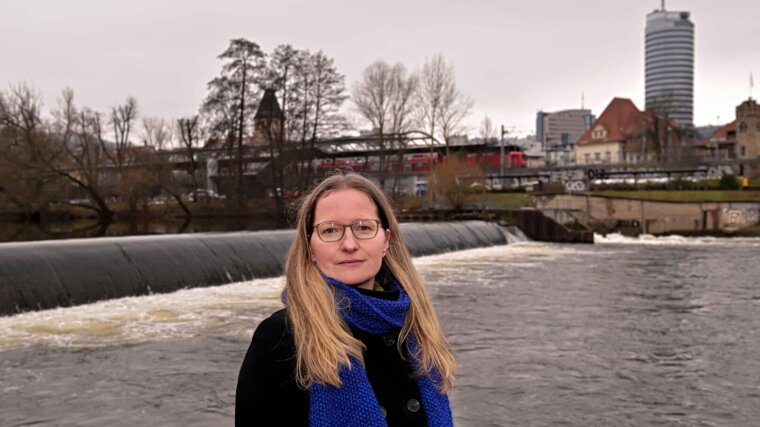
As water becomes ever scarcer, conflicts are arising. This not only affects parts of the world that are already struggling with drought and water shortages – it is also happening right on our doorstep in Thuringia. A team of sociology researchers in the »ThWIC« water cluster are investigating how society is dealing with the vital resource.
By Stephan Laudien
In Apfelstädt in the district of Gotha, a dispute is raging over the small river also called Apfelstädt that runs through the village. It starts at the Tambach-Dietharz dam and meanders for around 34 kilometres before flowing into the River Gera. Those living near the river are accusing the dam authority of diverting too much water to generate electricity and thus being responsible for the river drying up for a period in the summer months. A citizens' initiative has been set up, a solution is yet to be found.
Multiple lines of conflict
As unpleasant as this dispute may be for the region, it is certainly an invaluable source of information for Dr Diana Lindner. After all, the confrontation reveals lines of conflict that are likely to emerge in a similar fashion in many other places. »This dispute over a diminishing resource has many facets that we want to examine more closely,« says Diana Lindner. At Hartmut Rosa's chair, the sociologist from the University of Jena is coordinating six sub-projects for the »ThWIC« water innovation cluster that deal with sociological issues. She points out that the fundamental objective is to create a sociology of water. According to the sociologist, various aspects can be observed in the Apfelstädt dispute. For example, there are arguments about numbers, which begs the question of correct monitoring. In addition, there are very different perceptions of the body of water. An angler will see the river in a completely different way than farmers, for example, who use the river to irrigate their fields. Another aspect of the debate about the precious resource is the fact that the rural population feels left behind. »This feeling is getting stronger and stronger,« says Diana Lindner.
Despite the explosive nature of this issue, a look beyond national borders shows that far greater problems have to be overcome elsewhere. In one of the »ThWIC« sub-projects, Alexis Gros is investigating the situation on the Riachuelo and Reconquista rivers in Buenos Aires. The two tributaries of the River Plate are so polluted that all life has died out in them. They are some of the most polluted rivers in the world. »Alexis Gros will be exploring how the local population is dealing with the fact that a vital resource is no longer available,« says Diana Lindner.
The projects based in Thuringia will be focused more on finding new ways of dealing with water as a resource. However, the sociologists in Thuringia and Argentina are united in their pursuit of local knowledge, which they want to gather and put to good use. »We want to write and tell stories about water,« says Diana Lindner. The research projects have only just started - but exciting results are on the horizon, both in terms of local conflicts and global issues. After all, the vital resource of water is under threat worldwide – across all borders.